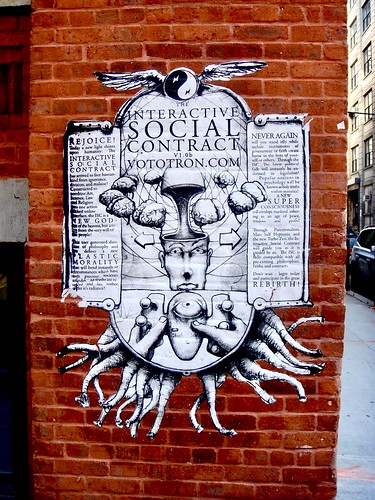
... but you actually can point your iPhone camera directly at the sun.
To the eye, the sun looked perfectly orange and the sky was blue. The camera interpreted the sun as white, and that required the sky to be perfectly orange.
Strewed over with hurts since 2004

Silberman [wrote]... that his great-grandfather had fought for the Union as part of Ulysses S. Grant’s army and was badly wounded at Shiloh, Tennessee. His great-grandfather’s brother, meanwhile, joined the Confederate States Army and was captured at Gettysburg, Pennsylvania. “It’s important to remember that Lincoln did not fight the war to free the Slaves Indeed he was willing to put up with slavery if the Confederate States Returned,” he wrote (lack of punctuation and errant capitalization in the original, and throughout). “My great great grandfather Never owned slaves as best I can tell.”From the clerk's pushback:
[M]y maternal ancestors were enslaved in Mississippi.... [M]y ancestors would not have been involved in the philosophical and political debates about Lincoln’s true intentions, or his view on racial equality.... [Y]ou talked about your ancestors, one that fought for the confederacy and one that fought for the Union.... [N]o matter how bravely your uncle fought for the Confederacy, the foundation of his fight was a decision that he agreed more with the ideals of the Confederacy, than he did with those of the Union.Silberman, a Reagan appointee, is 84 years old. Giving him the Medal of Freedom in 2008, President George W. Bush said:


Come a little bit closerNeil was getting what was for him an unusual idea: To go out and experience the moon.
Hear what I have to say
Just like children sleeping
We could dream this night away
But there's a full moon rising
Let's go dancing in the light
We know where the music's playing
Let's go out and feel the night

Did they count obesity as a "condition" when they did that calculation?Then:
I looked at the CDC report, and I see it only counted "severe obesity (body mass index ≥40 kg/m2)" as a condition. I'm a 5'5" woman, and I would need to weigh more than 240 pounds — more than 100 pounds over normal weight — to enter that BMI range.ADDED: My son questions my observation. The factor should be lower if they included less severe conditions. I agree with him. I'm thinking in terms of being less likely to die. When you're trying to figure out how dangerous the illness is to you, you consider how likely it is for a person in your condition to die if they get the disease. Perhaps it's the case that 99.9% of those who died of the disease were obese. Of course, that's not the same as saying if you get the disease and you're obese, you have a 99.9% chance of dying. But if the overall percentage of those who get the disease and die is 0.1%, then I'd like to know what's the percentage for those who get the disease but are not obese? Is it 0.01%? That would be extremely useful information! For one thing, it would give people something to do to protect themselves: lose weight. But also, it would show us who should continue the more extreme form of social distancing and who should feel free to get out and about.
Obesity begins at a 30 BMI, which would be 180 pounds for my height. That's 60 pounds less than the weight the CDC counted as a "condition" when it did its calculation. It wouldn't be 12 times as likely but what? — 100 times? — if they'd included the merely obese. And what if they'd counted the overweight but not obese? That would go all the way down to 150 for my height. It would be useful to know, because we have some power over our own weight!
Monday’s case was focused on employment law, a provision of the Civil Rights Act of 1964 known as Title VII. But Justice Neil M. Gorsuch’s opinion used language that is likely to apply to numerous areas of law where there is language preventing discrimination “because of sex” or “on the basis of sex.” Under the ruling, discrimination based on sexual orientation and gender identity ran afoul of the standard....He's read the decision. Ha ha. Did anyone tell him it was 172 pages long before he concocted that lie? I assume it's a lie. And go ahead and bullshit that if you've read any of the opinion — a paragraph, say — you've "read the decision."
“They’ve ruled,” [President Trump] said. “I’ve read the decision, and some people were surprised, but they’ve ruled and we live with their decision.”


Madness Penny Lane Defaced 😡 pic.twitter.com/IARaqO9zcP
— 🔥🔴David McGrady🔥🔴 (@Djmc76) June 12, 2020
Most types of risky behavior — reckless driving, criminal activity, fighting, unsafe sex and binge drinking, to name just a few — peak during the late teens and early 20s.... Under calm conditions, college-age individuals can control their impulses as well as their elders, but when they are emotionally aroused, they evince the poor self-control of teenagers.... But it’s hard to think of an age during which risky behavior is more common and harder to deter than between 18 and 24....We need to keep these little monsters locked up until they're 25. Who knows what they will do with their freedom? They might party in their hallways and become cavalier about wearing masks and sanitizing their hands. There's no end to the dangers of freedom. You really cannot trust people to put safety first, week after week, month after month. At some point, they will hang out and hook up.
My pessimistic prediction is that the college and university reopening strategies under consideration will work for a few weeks before their effectiveness fizzles out. By then, many students will have become cavalier about wearing masks and sanitizing their hands. They will ignore social distancing guidelines when they want to hug old friends they run into on the way to class. They will venture out of their “families” and begin partying in their hallways with classmates from other clusters, and soon after, with those who live on other floors, in other dorms, or off campus. They will get drunk and hang out and hook up with people they don’t know well. And infections on campus — not only among students, but among the adults who come into contact with them — will begin to increase....
[U]niversities must be informed by what developmental science has taught us about how adolescents and young adults think. As someone who is well-versed in this literature, I will ask to teach remotely for the time being.
Alito has a long dissent with at least 4 appendixes, Appendix D is full of images of government forms....ADDED: From Alito's dissenting opinion, we see how much everyone pays obeisance to Justice Scalia:
kavanaugh [dissenting] ends with: "Notwithstanding my concern about the Court’s transgression of the Constitution’s separation of powers, it is appropriate to acknowledge the important victory achieved today by gay and lesbian Americans. Millions of gay and lesbian Americans have worked hard for many decades to achieve equal treatment in fact and in law. They have exhibited extraordinary vision, tenacity, and grit—battling often steep odds in the legislative and judicial arenas, not to mention in their daily lives. They have advanced powerful policy arguments and can take pride in today’s result. Under the Constitution’s separation of powers, however, I believe that it was Congress’s role, not this Court’s, to amend Title VII. I therefore must respectfully dissent from the Court's judgement. "
The Court tries to convince readers that it is merely enforcing the terms of the statute, but that is preposterous. Even as understood today, the concept of discrimination because of “sex” is different from discrimination because of “sexual orientation” or “gender identity.” And in any event, our duty is to interpret statutory terms to “mean what they conveyed to reasonable people at the time they were written.” A. Scalia & B. Garner, Reading Law: The Interpretation of Legal Texts 16 (2012) (emphasis added). If every single living American had been surveyed in 1964, it would have been hard to find any who thought that discrimination because of sex meant discrimination because of sexual orientation––not to mention gender identity, a concept that was essentially unknown at the time.I understand your argument, but right now, I am busy applauding.
The Court attempts to pass off its decision as the inevitable product of the textualist school of statutory interpretation championed by our late colleague Justice Scalia, but no one should be fooled. The Court’s opinion is like a pirate ship. It sails under a textualist flag, but what it actually represents is a theory of statutory interpretation that Justice Scalia excoriated––the theory that courts should “update” old statutes so that they better reflect the current values of society. See A. Scalia, A Matter of Interpretation 22 (1997). If the Court finds it appropriate to adopt this theory, it should own up to what it is doing.
Many will applaud today’s decision because they agree on policy grounds with the Court’s updating of Title VII. But the question in these cases is not whether discrimination because of sexual orientation or gender identity should be outlawed. The question is whether Congress did that in 1964.
By discriminating against homosexuals, the employer intentionally penalizes men for being attracted to men and women for being attracted to women. By discriminating against transgender persons, the employer unavoidably discriminates against persons with one sex identified at birth and another today. Any way you slice it, the employer intentionally refuses to hire applicants in part because of the affected individuals’ sex, even if it never learns any applicant’s sex....
We agree that homosexuality and transgender status are distinct concepts from sex. But, as we’ve seen, discrimination based on homosexuality or transgender status necessarily entails discrimination based on sex; the first cannot happen without the second. Nor is there any such thing as a “canon of donut holes,” in which Congress’s failure to speak directly to a specific case that falls within a more general statutory rule creates a tacit exception. Instead, when Congress chooses not to include any exceptions to a broad rule, courts apply the broad rule. And that is exactly how this Court has always approached Title VII. “Sexual harassment” is conceptually distinct from sex discrimination, but it can fall within Title VII’s sweep. Oncale, 523 U. S., at 79–80. Same with “motherhood discrimination.” See Phillips, 400 U. S., at 544. Would the employers have us reverse those cases on the theory that Congress could have spoken to those problems more specifically? Of course not. As enacted, Title VII prohibits all forms of discrimination because of sex, however they may manifest themselves or whatever other labels might attach to them.